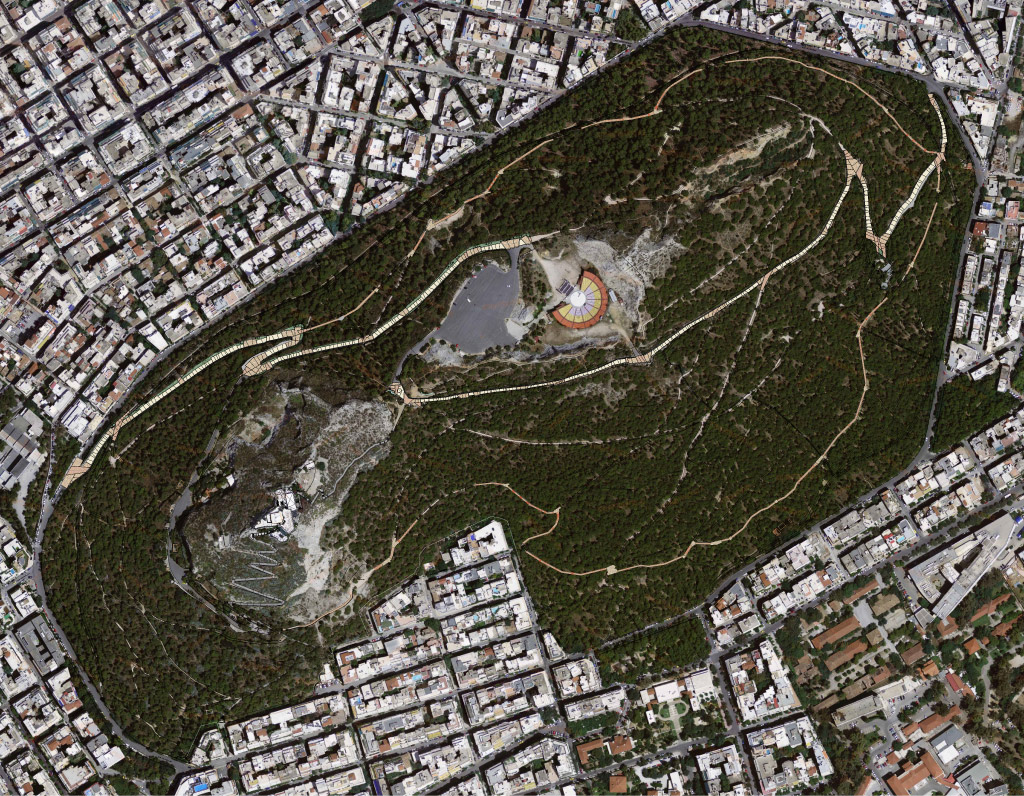
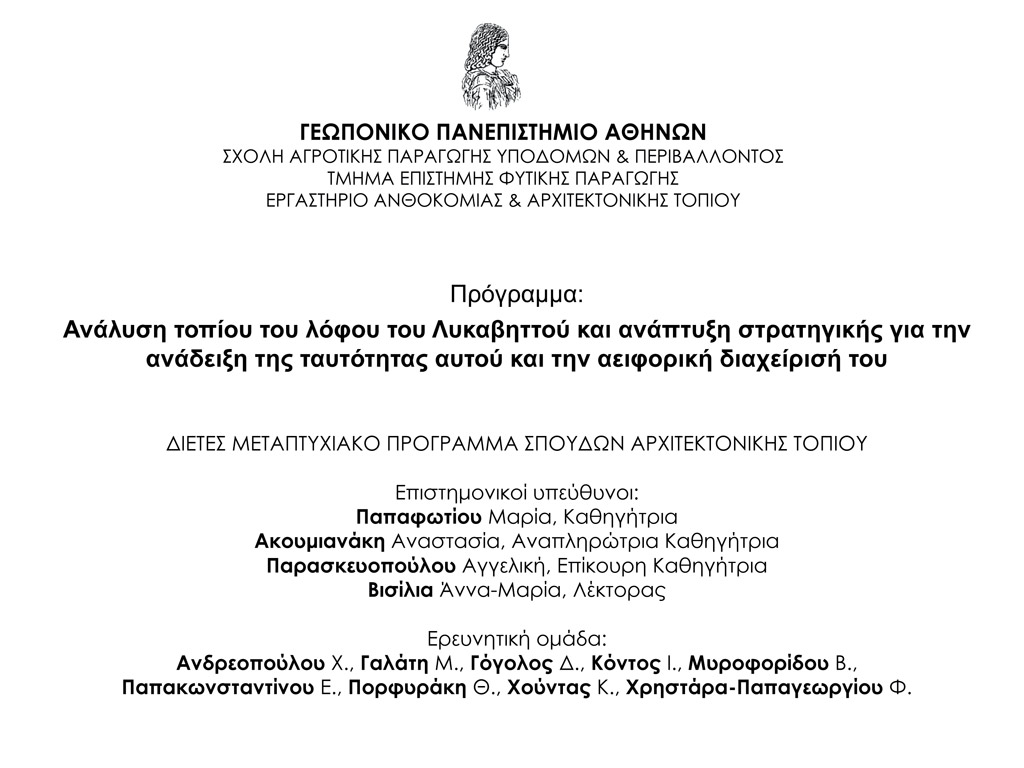
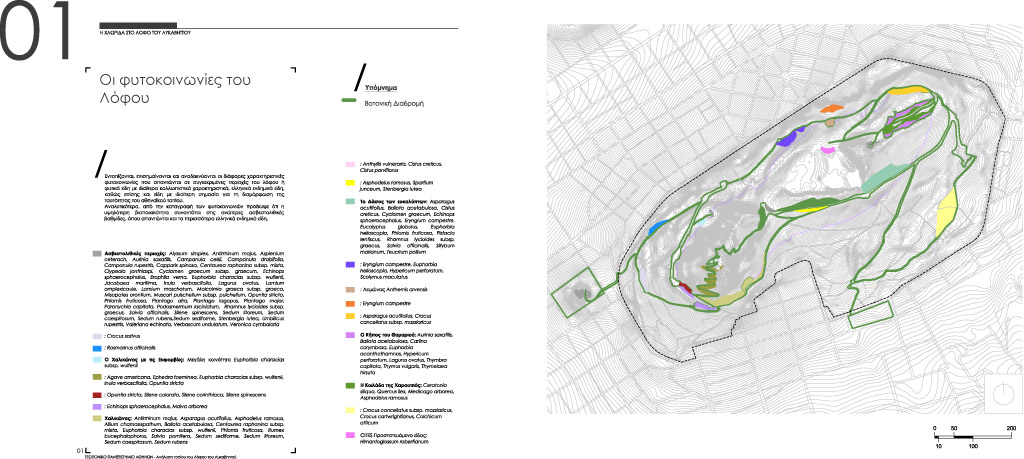
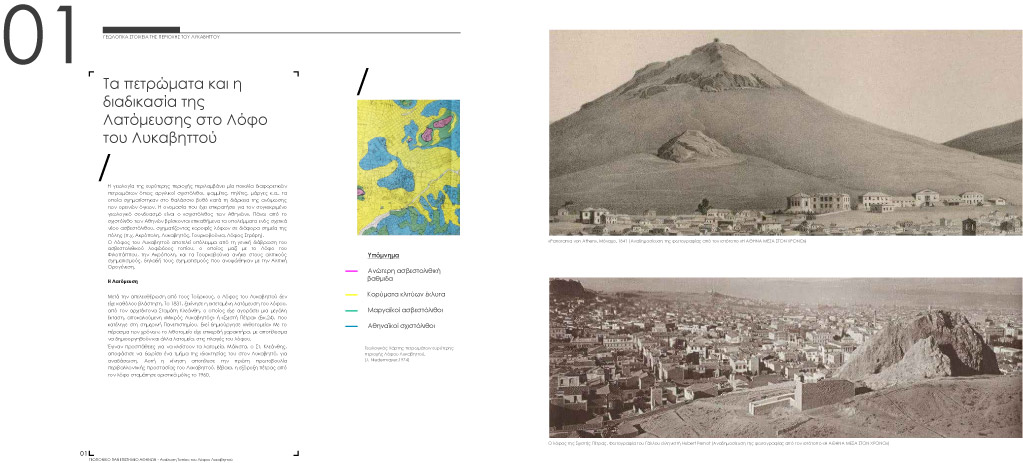
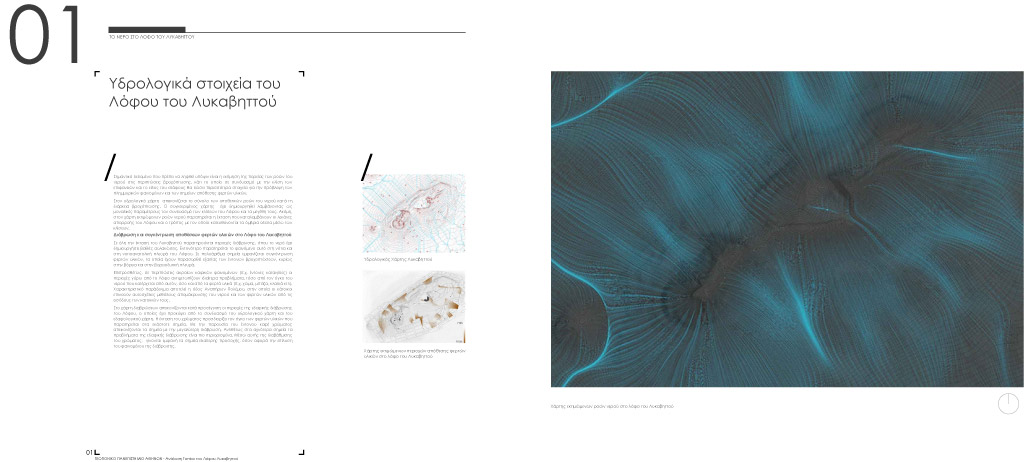
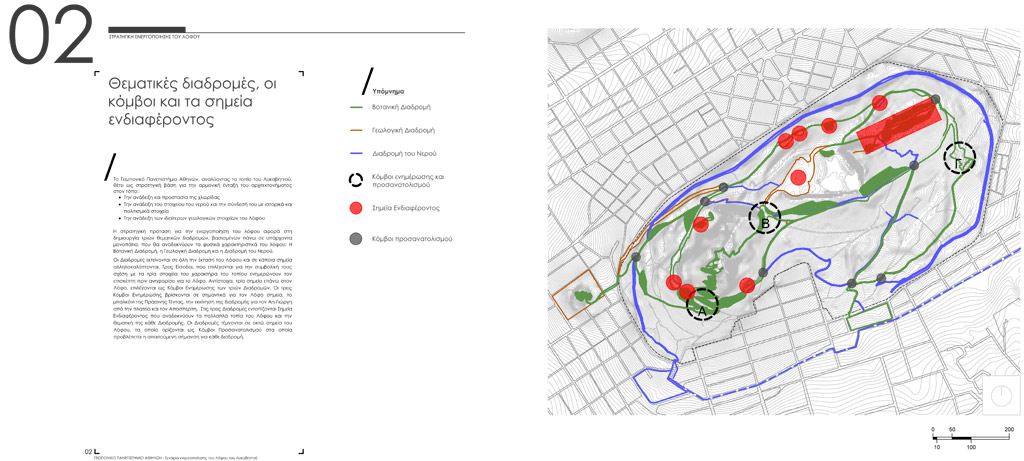
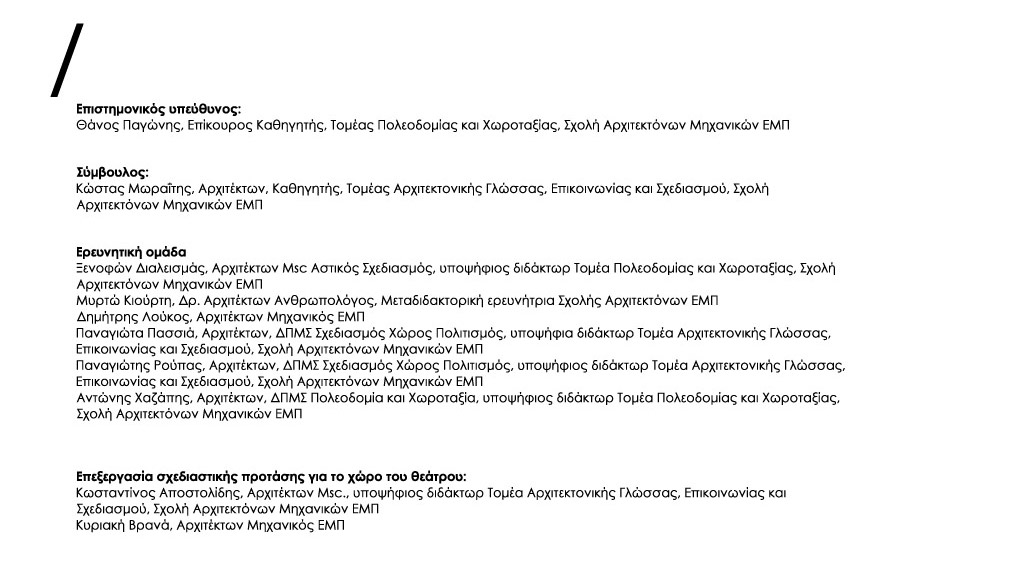
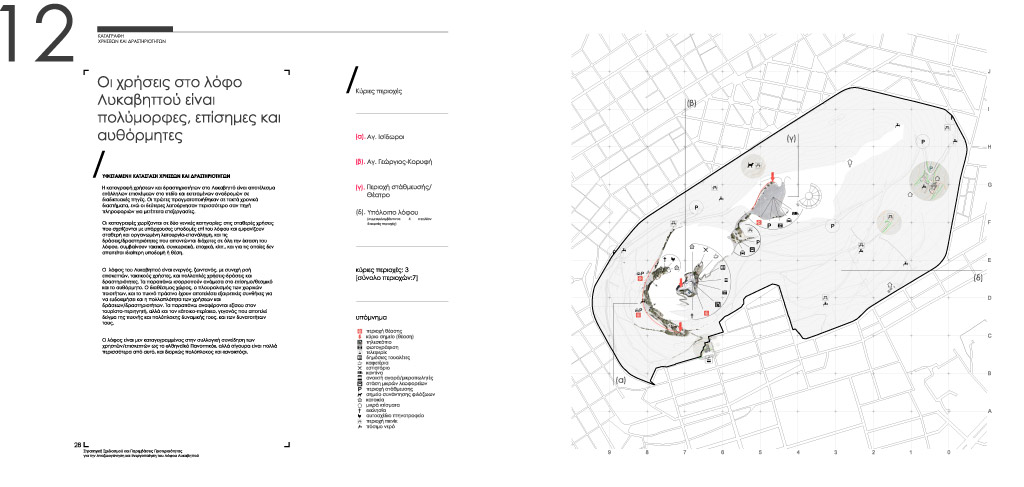
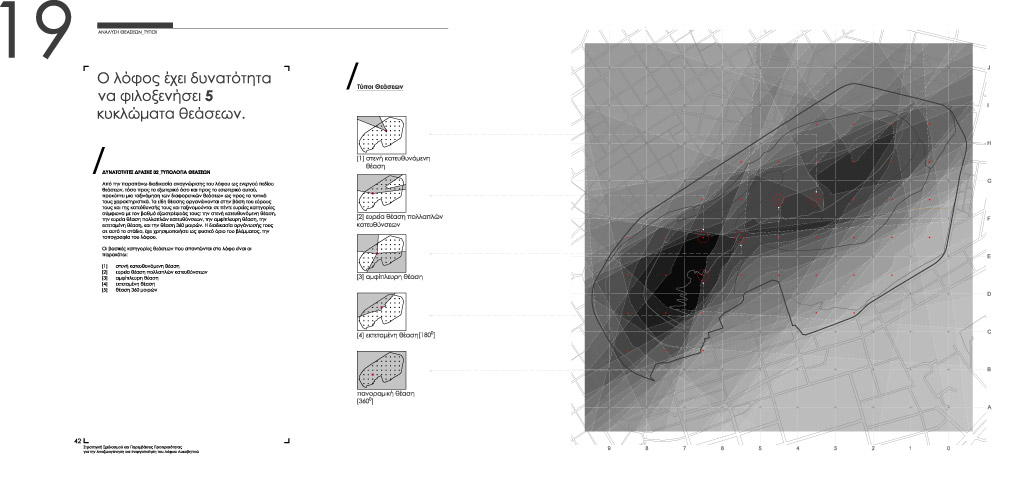
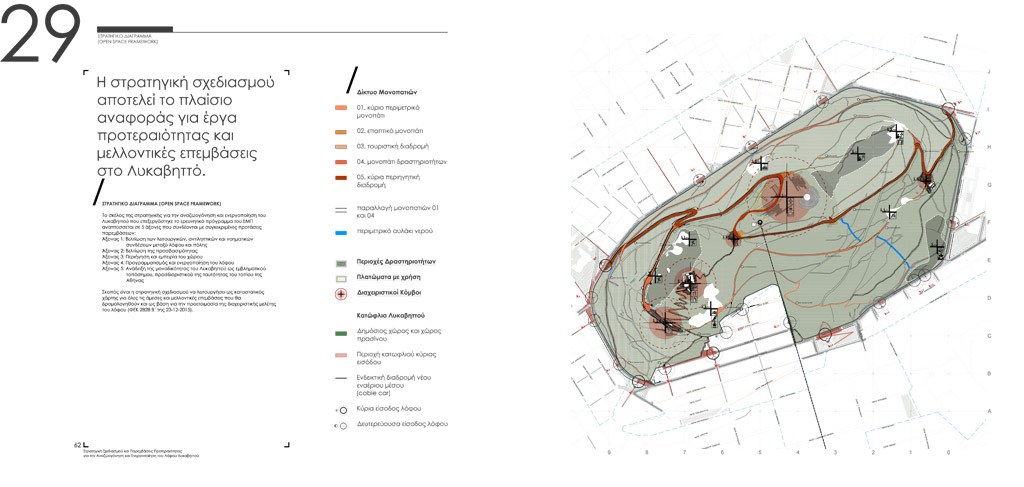
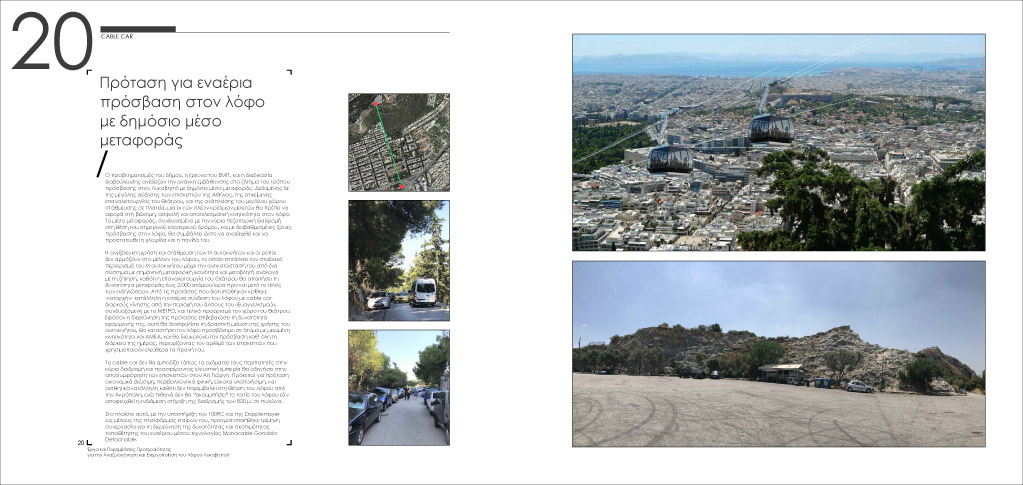
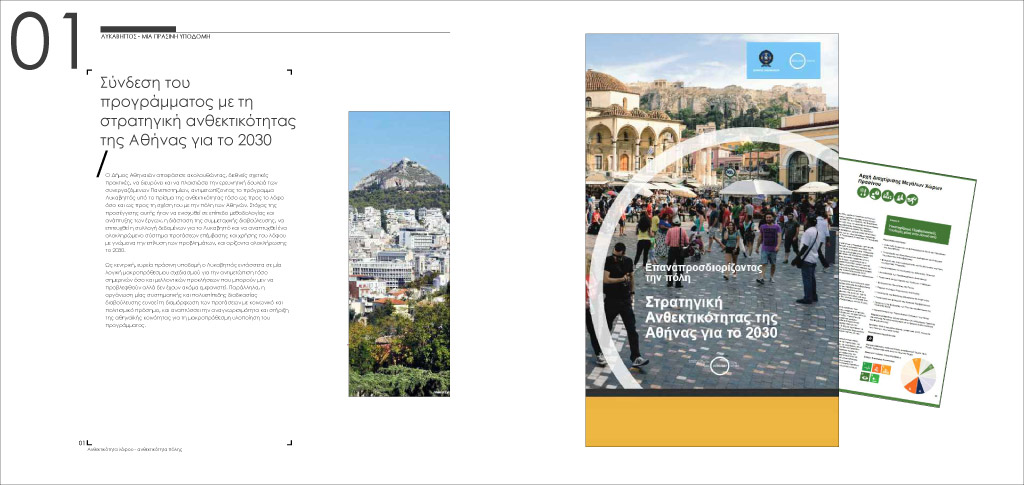
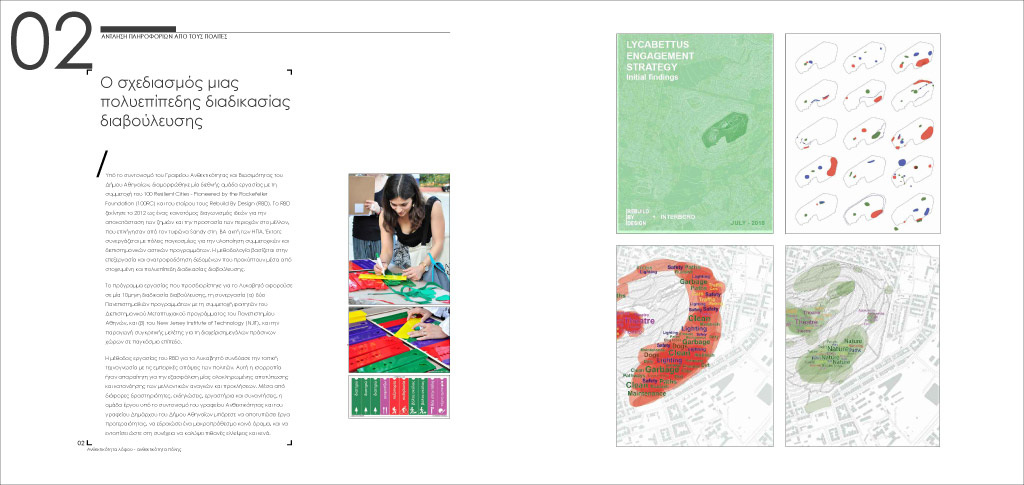
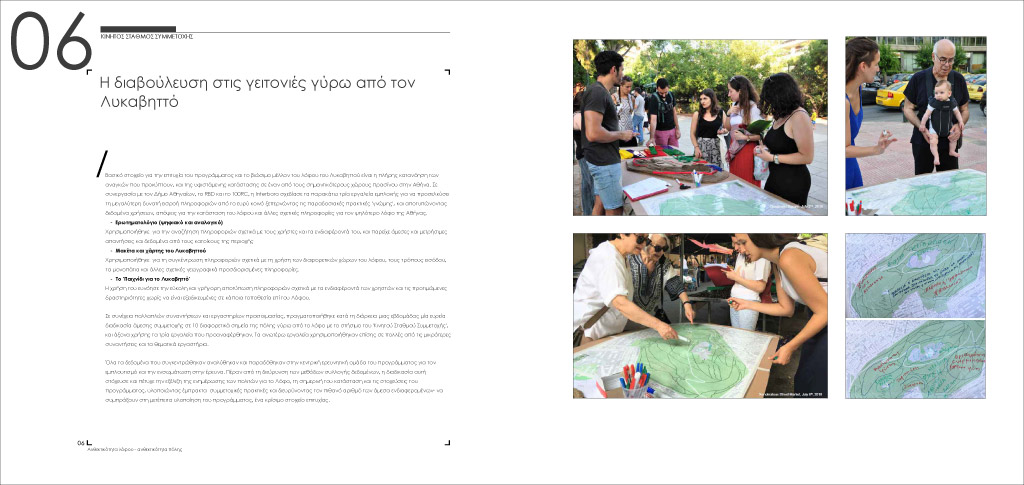
“LYCABETTUS PROGRAM: the present and future of the urban forest of Athens” (2017-2019)
Lycabettus hill is the emblematic physical landmark of Athens. Most of its 44,3 hectares are covered by a precious urban forest -the city center's prime green resource- and the hill bears many latent benefits for the surrounding neighborhoods, and the entire metropolis. Lycabettus is owned by the Municipality of Athens; the Mayor invited the Agricultural University and the School of Architecture of NTUA to collaborate with the Municipality in order to develop a strategic master plan, as a framework for the sustainable rehabilitation and protection of the hill. Urban design adviser Maria Kaltsa was appointed Project Manager of the innovative, multi-task “LYCABETTUS PROGRAM”. The Program followed an open, integrative approach, and engaged in interdisciplinary scientific and other necessary collaborations for the accomplishment of the task. Its extensive deliverables address diverse challenges and urban pressures applied on the hill, and comprise a thorough analysis of its natural and man-made features; also, they provide the foundation for its management and define the character of all future interventions.
The LYCABETTUS PROGRAM was financed by John S. Latsis Foundation and A. G. Leventis Foundation
Link to the LYCABETTUS PROGRAM catalog: https://resilientathens.files.wordpress.com/2019/09/site-cea4ce95cea5cea7ce9fcea3-ce9bcea5ce9ace91ce92ce97cea4cea4ce9fcea3.pdf
LYCABETTUS PROGRAM was developed with the participation and support of diverse disciplines, several teams of collaborators and many stakeholders acting in the city, with the aim to enhance the overall resilience of the hill, protect its environment, serve the needs of visitors, and connect it with the city's cultural identity. An MoU was set among the collaborating parties: the Municipality, the Agricultural University of Athens, and the Department of Urban Planning of the School of Architecture of NTUA. In parallel, the Vice Mayor of Urban Nature and Adaptation to Climate Change with the Urban Resilience office invited the 100RC of Rockefeller Foundation, who assigned their expert collaborators offices of RbD and INTERBORO -assisted by a local academic team led by D. Mourelatos- to design a consultation process with the city's high level stakeholders and groups of citizens. The scope was to socialize the process by collecting opinions and ideas that would determine the strategic vision and inform master planning.
Following extensive research, a comprehensive master plan was crafted as an enabling framework and road map of networks and hierarchies, guiding the application of ideas and the design of future projects for the enrichment and sustainable revitalization of Lycabettus hill.